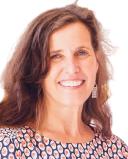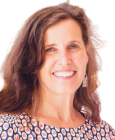Sexual Abuse
A Loaded Gun: Why Is It Hard to Discuss Clergy Abuse?
The potential power and danger of speaking the truth about clergy sexual abuse.
Posted August 25, 2018

I’m pulling the trigger on my loaded gun. I haven’t until now. Emily Dickinson’s poem My Life had stood - a Loaded Gun speaks to the internal rage I felt as a young woman. I learned of this poem from my mother-in-law Patricia Fennelly. After the birth of my son, Noah, Patricia had given me a book of Adrienne Rich’s writing where she quoted Dickinson’s poem. The poem’s immediacy of the alternating lines of iambic trimeter and tetrameter accelerated the tempo and my interest as a young impatient mother. I read the poem several times a day trying to understand the double meanings and why they bothered me so.
The first line immediately pauses near the middle of a line as if to take a deep breath before speaking up—before saying what needs to be said. Before a woman speaks, she pauses.
She waits.
Will she be heard?
Will what she says matter?
To anyone?
The “Loaded Gun” is the potential power and danger that a woman has—that I have acquired through my independence growing from the young, unprepared mother to middle age. It is important to note, as I have in other essays, that that power was not always there—accessible as it is now, and like many child sexual abuse survivors know, it isn’t always safe to speak—to tell. Especially the victims of the Catholic Church. We learn as children that priests, bishops, cardinals, and popes have supreme power and authority over us—over our stories.
Two lines from the poem prompted me to unfold my hands from prayers witnessed by shadowy corrupt men in robes. “We roam in Sovereign Woods We hunt the Doe—”. These two lines also validated what I knew to be true, that I was the powerless female, the Doe, she and her words killed by men. The young unprepared mother I was became less bothered and began to understand—to inch her way toward the suppressed anger within—she cupped her hands around her mouth and whispered to anger, “I see you in the poem—I feel you inside. I didn’t know what to call you. Now I do. I am angry.”
As I grow into middle-age, I understand anger. I understand that anger is useful. It makes us alert. It makes us act. Controlled anger targeting injustice and suffering is what fuels our humanity. Unleashed anger destroys our spirit and brings harm to others. I am angry that I am part of a worldwide pandemic—child sexual abuse—and having been raised in a worldwide child sex trafficking organization—the Catholic Church. I am alarmed by the growing numbers; 1 in 4 girls and 1 in 6 boys will be sexually abused before their 18th birthday. I don’t want to live in a world that accepts this as a fact. I want to understand: How did I, JoAnn, become part of this pandemic? What systems and policies failed, that forced me into a secret life with a Catholic priest, a pedophile? What parts of my childhood development were delayed due to learning to survive sexual violence, emotional and physical abuse, loneliness, estrangement, betrayals, and paranoia? Where did my resilience come from? How did putting on my mask of lies both hasten and hinder my healing process?
I grew up in a family where my very survival was based on my ability to lie. Confidently, and without pause. I had to be quick on my feet. To think always about the consequences of saying the wrong thing to the wrong person.
As an adult I have learned to divert inquires about who I was, where I was from, and why I was estranged from my family. I used to lie to family, friends, and strangers who I just met. I understand now, that so much more was taken from me than my innocence as a young girl. I was denied any sense of community, of having what it means to be protected—safe. I was denied the opportunity to learn who I was and how I saw myself in the world and what brought me joy or made me curious. I was denied proper guidance, the beautiful feeling of being loved because you exist—because you are—because I am.
I have deep moral questions about writing about sexual abuse. I have learned that I can twist myself on and then off this page fraught with moral, philosophical, and ethical concerns. What is my moral obligation to share this story? What do we owe and what do others owe us, child sexual abuse victims, to protect future children? It is easier to say nothing, or to speak quietly involving as few people as possible. It is what the organizational culture of the Catholic Church has constructed as a socially acceptable practice to handle claims of sexual violence and other crimes against children.
My perspective of moral obligation has changed as I have matured. Alan Wolfe, a renowned social scientist, said it best, “…no abstract and formal rules exist specifying what we owe to others and others owe us. Instead, moral obligation ought to be viewed as a socially constructed practice, as something we learn through the actual experience of trying to live together with people.” It is important too that there is significant evidence that shows that “children are not universally harmed by sexual abuse (Clancy 2010), although some are. For some individuals it is a relatively unimportant event in their lives, or even a challenge from which they have gained strength.” I agree. More harm was done by the environment which allowed the sexual assault and molestation to occur rather than the acts themselves.
One way I have worked through my trauma in my childhood years is to write. Writing was and is my mask. Writing is the way I can examine my pain and trauma without owning it—without risking telling someone and being shut down—shut up —shut away—shunned. When I was eight I told a childhood friend. When I was fifteen I told a trusted adult, disclosed. They believed me. They also believed that I should shut up. When I confronted my mother with what she was allowing to happen to me during her love affair with a Catholic priest, she feigned anger as she removed me from the home, isolated me from my brothers and sisters, and secured what wealth she had accumulated—in the end, when she married him, her penultimate betrayal, it was apparent she would only look out for herself.
I put my writer’s mask on as I wrote parts of my story as a short story, a novel, a one act play, a nonfiction draft on how Buddhism can help sexual abuse victims heal, a screenplay, and finally, a television series. The titles of the stories have ranged from It Looks Like Rain to The Wrecking Ball to Ms. America to One of the Girls and finally to my published novel Howard Be thy Name. I didn’t think anyone would want to read, see, or perform my story. After after having written a pilot, and three episodes of Howard Be Thy Name, and then delivering my pitch during a Columbia University Television Writing workshop my confidence was destroyed. The instructor shot down my story by saying something to the effect of—no one is going to want to spend one season with this guy—he’s a creep—the story should be about the boy—the brother— not the girl. And the class nodded. Some shook their heads side to side and some shook their heads up and down. The student next to me started his pitch—it was about a guy who finds out his girlfriend cheated on him and screws up trying to kill her. The class listens. The class smiles. The class asks questions. No one says the guy should be killed, not the girl.
Not the girl.
Not me.
No one is interested in your story.
No one is interested in a story about a priest who hurts a little girl.
I surrendered.
I shut up.
I shut down.
I shut away—for a little while.
Then the feeling came back. This need to look at this thing that happened to me. This thing that bothers me most all the time. This persistent prickly feeling that something is not right and that I can fix it if I can just understand it. When the feeling isn’t fleeting anymore, when I feel that if I can’t understand this thing—this trauma—this complex feeling of betrayal and vulnerability that I will never understand myself and I will not live the life I am supposed to. The life that I was destined to have if I was raised in a loving, protected environment where I could learn my strengths from small challenges and become resilient through traumas that are promptly responded to by caring, responsible adults.
Who would that girl have become?
Where would that girl be now?
Some days I feel completely confident to write about the fragile, secret life I lived. I am filled with hope that it will become a meaningful story that spotlights the impact the policies of the Catholic Church had on one little girl growing up in Albany, New York. I feel strongly that I am the right one to tell this story.
Other days, really most days, I don’t want to. Full stop.
I shut up.
I shut down.
I shut away.
It is then that I go back to writing a fiction account. The fiction is like a drug. It keeps me from the truth. It masks the pain. I am in control. It is easy, more comfortable, to shape scenes as I wish. I sprinkle in nice characters in a scene here and there, I add someone meaner in another scene. I don’t have to write about or think about how the people really acted or didn't act in my story—my true story—the one that makes me shut up. I feel a rush when I open the closet door and pull out the box of drafts again. I sift through the pages. The words lift from the page and float around me, never landing. If they do I quickly brush them off. This is fiction. Not real.
And then one day, the rush fades, the paper is just paper—the fiction is just fiction and I look at it as such. I realize looking over the various drafts in the various formats over the various years and through the various perspectives that the fiction writing diluted the events. The question then becomes: Why was I working so hard to dilute the drama, weaken the counterpoint? To make them palatable? Palatable. Why do I choose this word? Palatable means easy to swallow. The second definition of palatable works better. Agreeable or acceptable to the mind. I have to make the events agreeable or acceptable to the mind. To my mind? To the reader’s mind? Who’s mind am I worried about? This is important.
The difference between the minds, between what is fiction and what is true, and what has been diluted in my fiction scares me because another question concerns me. Do I want to tell a story or tell the story? As a writer this is important. I choose to tell the story—as I remember it. So I sit at my keyboard with fear seated to my right, the loaded gun seated to my left, and my heart centered—beating stronger than ever. I begin writing. I take a breath. I am still finishing my second novel in the trilogy The Book of Jo—I will, but for now that story will have to wait. Right now there is an urgency, a deep grief—my constant companion—my muse—and it has summoned the words to pull the trigger. The title. A Loaded Gun—A Memoir
Here is the poem:
My Life had stood - a Loaded Gun
BY EMILY DICKINSON
My Life had stood - a Loaded Gun -
In Corners - till a Day
The Owner passed - identified -
And carried Me away -
And now We roam in Sovreign Woods -
And now We hunt the Doe -
And every time I speak for Him
The Mountains straight reply -
And do I smile, such cordial light
Opon the Valley glow -
It is as a Vesuvian face
Had let it’s pleasure through -
And when at Night - Our good Day done -
I guard My Master’s Head -
’Tis better than the Eider Duck’s
Deep Pillow - to have shared -
To foe of His - I’m deadly foe -
None stir the second time -
On whom I lay a Yellow Eye -
Or an emphatic Thumb -
Though I than He - may longer live
He longer must - than I -
For I have but the power to kill,
Without - the power to die -
Source: The Poems of Emily Dickinson: Reading Edition ed by Ralph W. Franklin (Harvard University Press, 1999)
References
The Poems of Emily Dickinson, Edited by R. W. Franklin (Harvard University Press, 1999)
Source: The Poems of Emily Dickinson: Reading Edition ed by Ralph W. Franklin (Harvard University Press, 1999)




